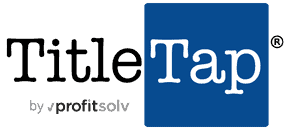There’s no denying it: search engine optimization, or SEO, for law firms is non-negotiable. This digital marketing strategy involves refining your web pages’ content and structure to ramp up its visibility on search engines, like Google and Bing—all without paying for ads. It aims to make your site rank higher on organic search results, making it more likely for potential visitors to find you when they search for topics relevant to your products or services.
Recognizing the significance of SEO in the competitive legal arena, let’s explore effective SEO tips for law firms to amplify your online presence and help you attract new clients.
The Case for Prioritizing SEO in Law Firm Marketing
About 450,000 law firms and over 1.3 million practicing lawyers—that’s precisely how cutthroat the law profession is in America alone. And with the high economic stakes at hundreds of billions of dollars annually, you can’t leave your marketing results to word-of-mouth or traditional advertising. You need an equally fierce strategy: SEO.
When someone needs a lawyer, the first thing they do is turn to the internet. If your law firm doesn’t show up in those top search results, you’re essentially invisible to a large number of potential clients. Through SEO for law firms, people searching for legal assistance in your specialty can find you on the double. This establishes your authority, enables you to stand out from the crowd, and bolsters your chances of being chosen from among the crowd.
However, deciding to utilize SEO for law firms isn’t enough. The real game is in maximizing its impact.
SEO for Law Firms: Strategies & Best Practices
Here are powerful strategies to put you right at the top of search engine rankings.
On-page SEO Tactics
On-page SEO refers to optimizing elements and content that are directly on your web pages to make them more appealing to search engines. These include texts, images, and HTML codes. Some excellent on-page SEO techniques are:
1. Establishing credibility through Experience, Expertise, Authority, and Trustworthiness (E-E-A-T)
The acronym E-E-A-T stands for key factors that Google uses to assess the quality of web content for SEO. Although it can be influenced by off-page SEO factors, this framework is primarily evaluated through on-page content and its presentation on your website.
To demonstrate:
- Experience – Highlight your history and accomplishments in your field through detailed case studies or timelines of your work.
- Expertise – Ensure your content is deeply researched and authored by credentialed professionals. This reflects a thorough understanding of your subject matter.
- Authoritativeness – Boost this by securing backlinks from reputable sites, getting your content featured in well-known publications, and gathering endorsements from industry leaders.
- Trustworthiness – Maintain content accuracy by providing clear authorship and ensuring your website’s security features are up-to-date.
2. Ensuring High-Quality Content
Develop an effective content marketing strategy. Regularly publish engaging and informative content that addresses common questions and issues related to your practice areas.
Ensure High-Quality Content with Socialite
Effortlessly curate content from your favorite sources, generate summaries, and share them as engaging Facebook blog posts. Simply choose the articles, and let Socialite handle the rest!
3. Creating Meta Descriptions and Title Tags
Craft unique and concise meta descriptions and title tags, integrating relevant keywords strategically. Title tags serve as the definitive titles of web pages, displayed on search engine results pages (SERPs) as clickable headlines. They are crucial for SEO and user experience, providing a snapshot of the content’s subject matter.
Similarly, meta descriptions briefly summarize the page content beneath the title tags in SERPs. While they don’t directly affect search engine rankings, they can influence click-through rates by giving searchers a quick insight into the page’s relevance to their query. Effectively using these tags helps search engines understand and categorize the content of each page, enhancing visibility and user engagement.
4. Enhancing Technical Structures
Technical structure enhancements help search engines better index and display your site in search results. Critical technical SEO factors are:
- Crawlability—Your website must be designed so that no blockages prevent information from flowing freely. Tools like robots.txt and sitemaps guide search engines through the website effectively.
- Indexing—Tags, structured data, and canonical URLs (the primary page among duplicates, as identified by Google) assist search engines in determining which pages are important and should be indexed. These efficient mechanisms speed up query processing.
- Flat website architecture—A system’s architecture is crucial for its efficiency and effectiveness. Similarly, in SEO, a flat website architecture means important pages are only a few clicks away from the main page, enhancing user experience and search engine crawling.
- Speed optimization—Techniques like compressing images, minimizing code, and leveraging browser caching can enhance website load times.
- Mobile responsiveness—Web pages should instantly adapt to the size and orientation of the user’s screen. This responsive design uses fluid grids, flexible images, and CSS media queries to make the website’s layout and content look good and stay usable across different devices.
- Security—Website security (like using HTTPS, the protocol for transferring data over the web) is vital for safeguarding user data and gaining trust from users and search engines.
Off-Page SEO Tactics
Off-page SEO involves activities outside your website to improve your site’s reputation and visibility within SERPs. They do not include making changes to the site itself. Some good examples of off-page SEO techniques are:
1. Social Media and Forums
Stay active on social media platforms and legal forums to reach out to potential clients and share valuable content.
2. Local SEO
Since many clients seek local legal services, it makes sense to leverage local SEO. Make sure your firm is listed in local directories and on platforms like Google My Business. Optimize your listings with accurate and consistent contact information, business hours, and relevant photos to intensify local search visibility.
3. Content Marketing
Use guest blogging, podcasts, or digital PR to effectively promote your firm’s expertise. This will attract more inbound links and fortify your firm’s online presence.
4. Reviews
Encourage satisfied clients to leave excellent reviews on Google, Yelp, and other platforms. These can go a long way in boosting your firm’s trustworthiness and authority signals to search engines.
All of these SEO strategies for law firms are solid, but a pivotal question remains: Who will execute them? This is where TitleTap enters the picture.
Champion Your Success with TitleTap
You’ve already got a lot on your plate. The last thing you want is another long list of to-dos. TitleTap is designed to help you and your law firm automate your marketing and achieve online success, saving you time, money, and energy.
Unlike providers that offer piecemeal services, TitleTap provides a cohesive strategy that includes everything from website design to complete SEO for law firms. This integrated approach ensures that your firm not only ranks well but also provides an exceptional digital experience that converts visitors into clients.
We’re also cost-effective. Whether it’s a website-only or a website + add-ons plan, we’ll give you the strategy that’s perfect for you.

Elevate Your Law Firm's SEO with TitleTap
With TitleTap, you get more than just typical SEO services. Access a full suite of tailored solutions designed to meet your law firm’s unique needs.
